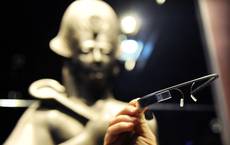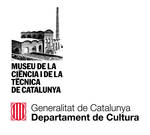12 November 2013
How Google Glass could allow museums to become fully accessible to deaf people
We've briefly covered the possibilities opened by ICT in the use and fruition of Cultural Heritage among visually impaired persons previously on this website, and GoogleGlass4LIS seems to take advantage of the latest technology to open up the use of Heritage for deaf persons.
It was just a matter of time until the first applications for Google Glass would have hit the Cultural Heritage sector.
Many reflections and speculations on how the state-of-the-art piece of wearable technology would have impact the use of Cultural Heritage have been made since Glass' announcement, but the newly-announced GoogleGlass4LIS showcase one of the possibilities of the gear in action.
GoogleGlass4LIS is a freshly launched application specifically engineered for Google Glasses, which aims to make museums fully accessible also for deaf people.
Developed by Rokivo Inc. and Vidiemme Consulting, in collaboration with research groups (Politecnico di Torino, University of Turin) and local institutions, the GOOGLEGLASS4LIS project allows to convert written texts into Italian Sign Language (LIS). The App is piloting currently in the Egyptian Museum of Turin.
Written texts [...] have been converted through the use of a virtual actor – an avatar, in the next future – in Sign Language and the video is directly displayed on Google Glass, in order to have a full museum fruition
The App is currently working only with the statue of Ramses II, which is considered to be one of the masterpieces in the Turin's collection, but will be soon enriched with the most important items and collections of the Museum.
Below you can find a video showcasing the project, available for the moment in Italian only.
Stefano Sbarbati
back







